William Somerset Maugham Quotes & Sayings
Enjoy the top 13 famous quotes, sayings and quotations by William Somerset Maugham.
Famous Quotes By William Somerset Maugham
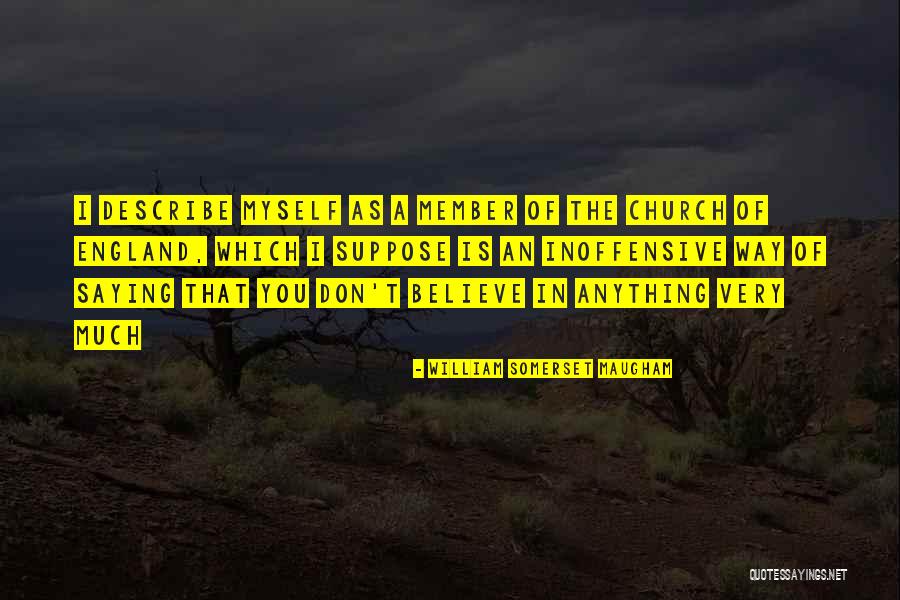
I describe myself as a member of the Church of England, which I suppose is an inoffensive way of saying that you don't believe in anything very much — William Somerset Maugham
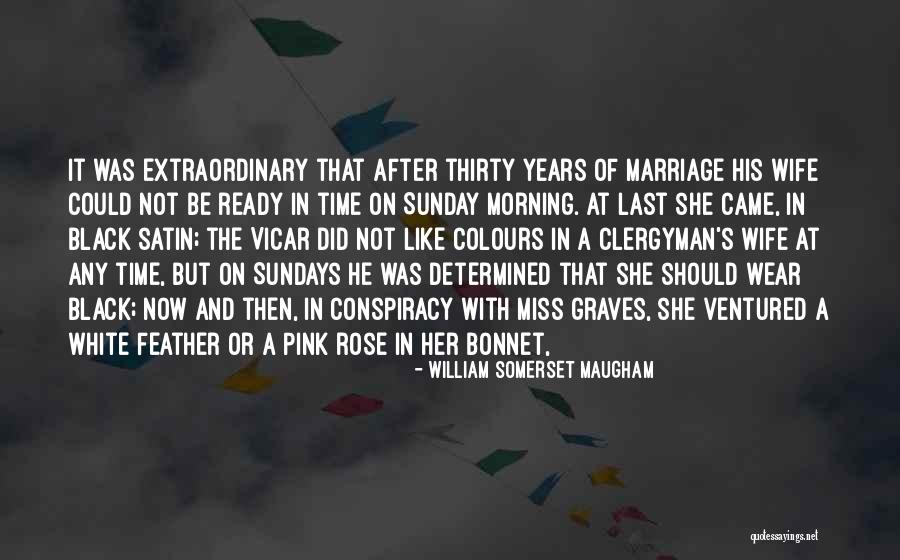
It was extraordinary that after thirty years of marriage his wife could not be ready in time on Sunday morning. At last she came, in black satin; the Vicar did not like colours in a clergyman's wife at any time, but on Sundays he was determined that she should wear black; now and then, in conspiracy with Miss Graves, she ventured a white feather or a pink rose in her bonnet, — William Somerset Maugham
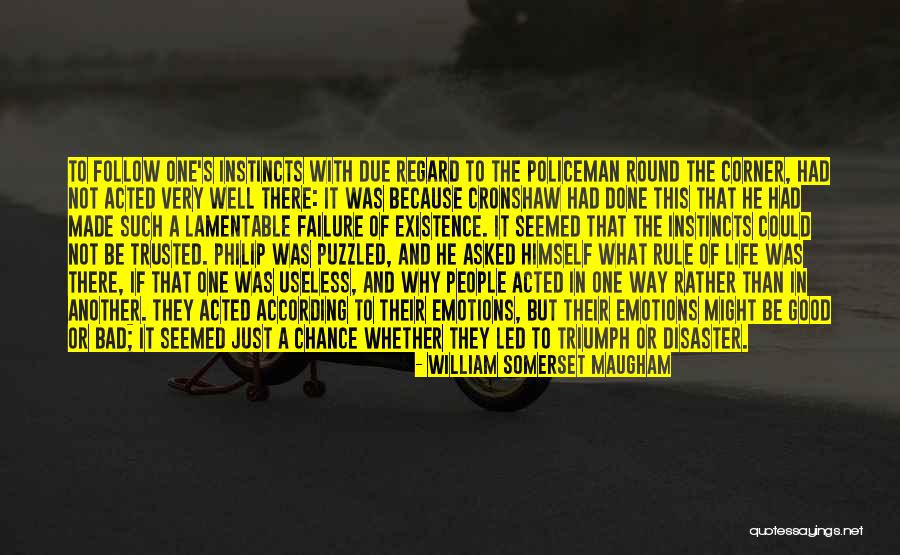
to follow one's instincts with due regard to the policeman round the corner, had not acted very well there: it was because Cronshaw had done this that he had made such a lamentable failure of existence. It seemed that the instincts could not be trusted. Philip was puzzled, and he asked himself what rule of life was there, if that one was useless, and why people acted in one way rather than in another. They acted according to their emotions, but their emotions might be good or bad; it seemed just a chance whether they led to triumph or disaster. Life seemed an inextricable confusion. Men hurried hither and thither, urged by forces they knew not; and the purpose of it all escaped them; they seemed to hurry just for hurrying's sake. — William Somerset Maugham

Philip came gradually to know the people he was to live with, and by fragments of conversation, some of it not meant for his ears, learned a good deal both about himself and about his dead parents. Philip's father had been much younger than the Vicar of Blackstable. After — William Somerset Maugham
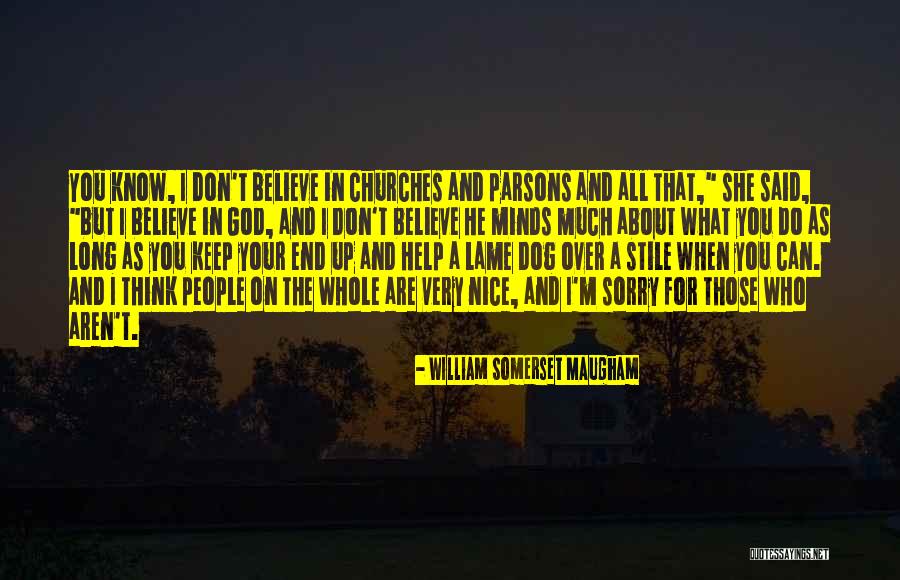
You know, I don't believe in churches and parsons and all that," she said, "but I believe in God, and I don't believe He minds much about what you do as long as you keep your end up and help a lame dog over a stile when you can. And I think people on the whole are very nice, and I'm sorry for those who aren't. — William Somerset Maugham
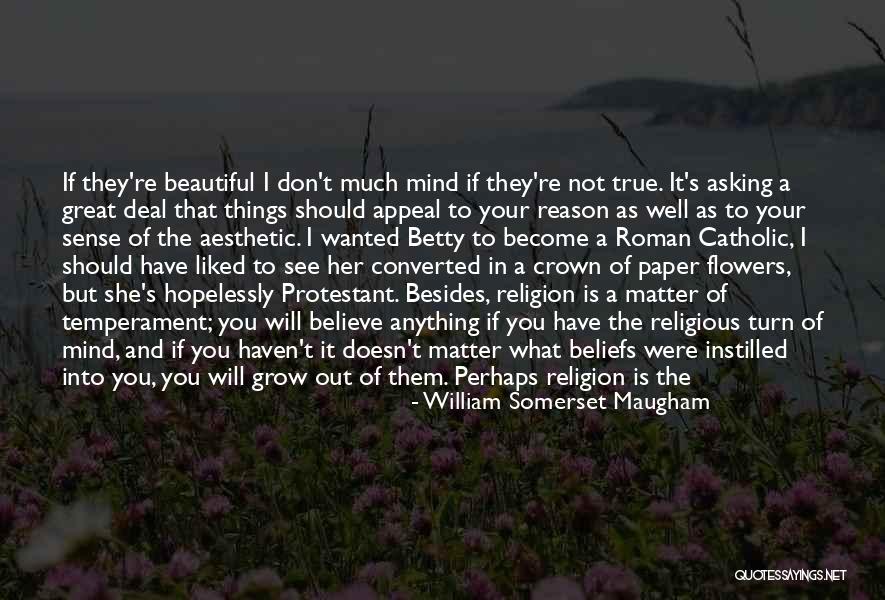
If they're beautiful I don't much mind if they're not true. It's asking a great deal that things should appeal to your reason as well as to your sense of the aesthetic. I wanted Betty to become a Roman Catholic, I should have liked to see her converted in a crown of paper flowers, but she's hopelessly Protestant. Besides, religion is a matter of temperament; you will believe anything if you have the religious turn of mind, and if you haven't it doesn't matter what beliefs were instilled into you, you will grow out of them. Perhaps religion is the best school of morality. It is like one of those drugs you gentlemen use in medicine which carries another in solution: it is of no efficacy in itself, but enables the other to be absorbed. You take your morality because it is combined with religion; you lose the religion and the morality stays behind. A man is more likely to be a good man if he has learned goodness through the love of God than through a perusal of Herbert Spencer." This — William Somerset Maugham
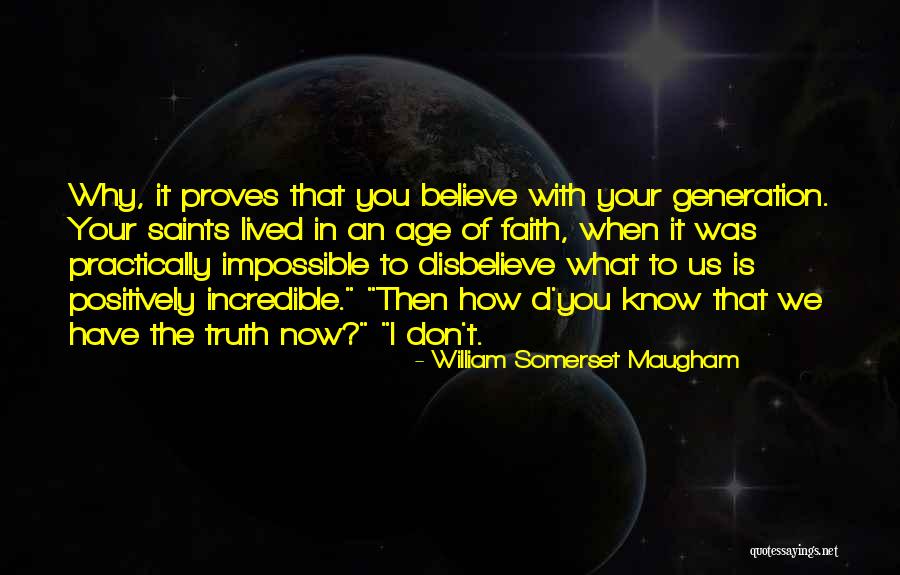
Why, it proves that you believe with your generation. Your saints lived in an age of faith, when it was practically impossible to disbelieve what to us is positively incredible." "Then how d'you know that we have the truth now?" "I don't. — William Somerset Maugham
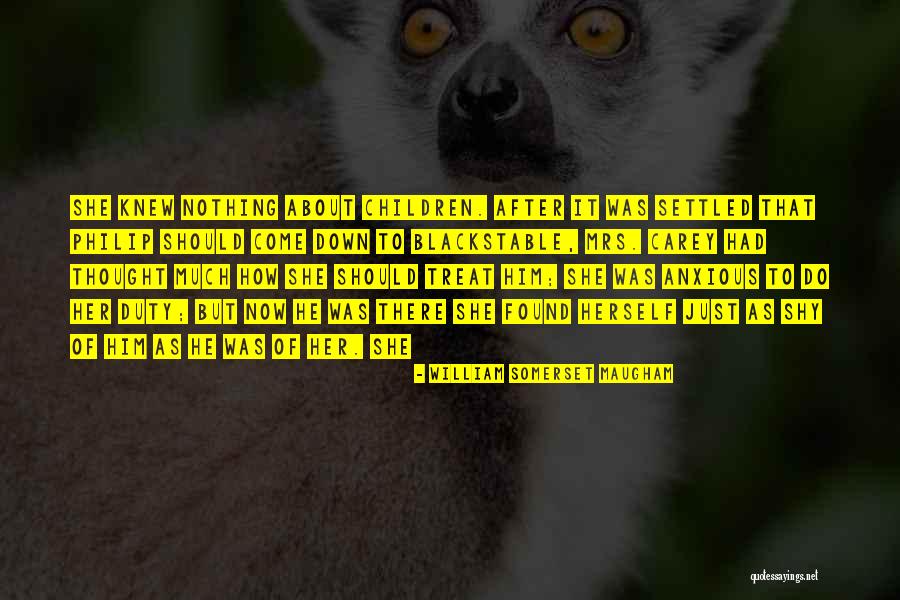
She knew nothing about children. After it was settled that Philip should come down to Blackstable, Mrs. Carey had thought much how she should treat him; she was anxious to do her duty; but now he was there she found herself just as shy of him as he was of her. She — William Somerset Maugham

She had added medicine because her brother-in-law practised it, but did not forget that in her young days no one ever considered the doctor a gentleman. The — William Somerset Maugham

What are you to do with a boy who never argues with you, but does exactly what he likes and when you get mad at him just says he's sorry and lets you storm? — William Somerset Maugham
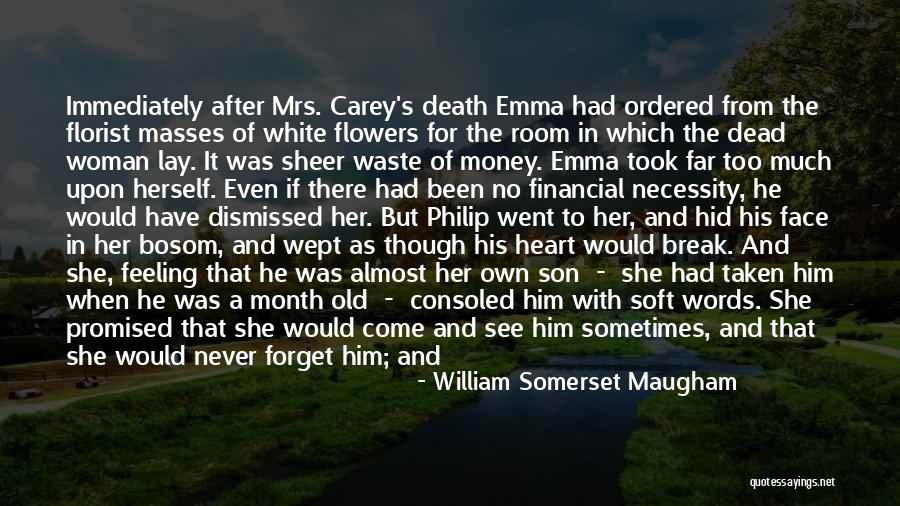
Immediately after Mrs. Carey's death Emma had ordered from the florist masses of white flowers for the room in which the dead woman lay. It was sheer waste of money. Emma took far too much upon herself. Even if there had been no financial necessity, he would have dismissed her. But Philip went to her, and hid his face in her bosom, and wept as though his heart would break. And she, feeling that he was almost her own son - she had taken him when he was a month old - consoled him with soft words. She promised that she would come and see him sometimes, and that she would never forget him; and — William Somerset Maugham
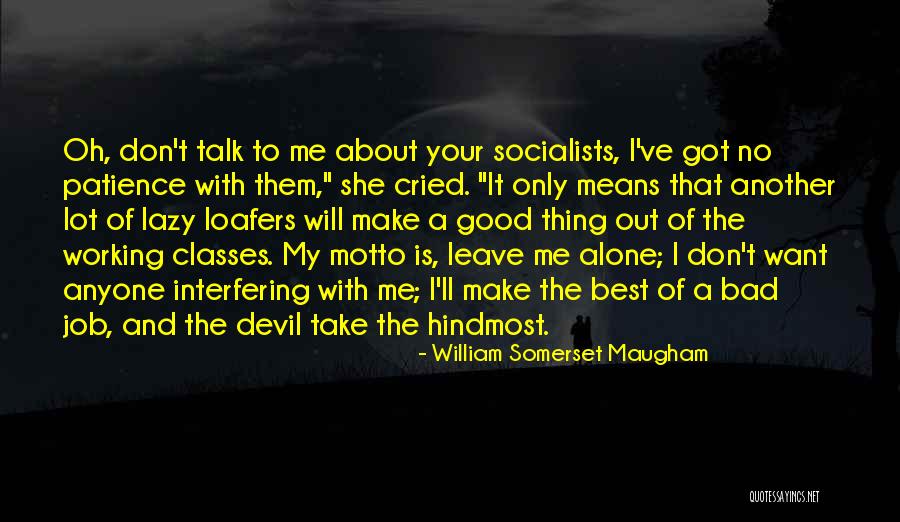
Oh, don't talk to me about your socialists, I've got no patience with them," she cried. "It only means that another lot of lazy loafers will make a good thing out of the working classes. My motto is, leave me alone; I don't want anyone interfering with me; I'll make the best of a bad job, and the devil take the hindmost. — William Somerset Maugham
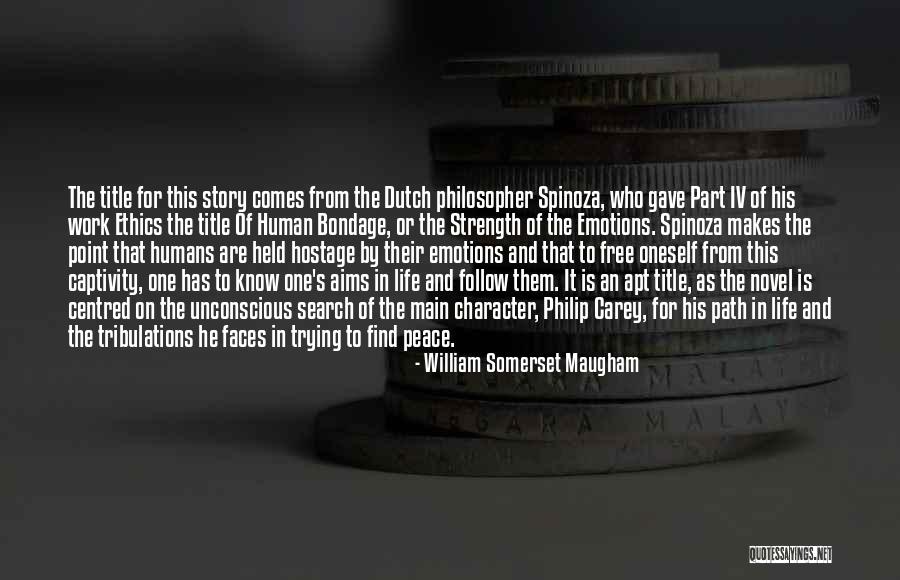
The title for this story comes from the Dutch philosopher Spinoza, who gave Part IV of his work Ethics the title Of Human Bondage, or the Strength of the Emotions. Spinoza makes the point that humans are held hostage by their emotions and that to free oneself from this captivity, one has to know one's aims in life and follow them. It is an apt title, as the novel is centred on the unconscious search of the main character, Philip Carey, for his path in life and the tribulations he faces in trying to find peace. — William Somerset Maugham





